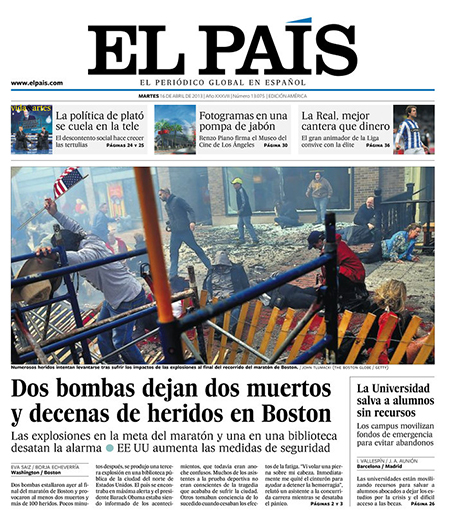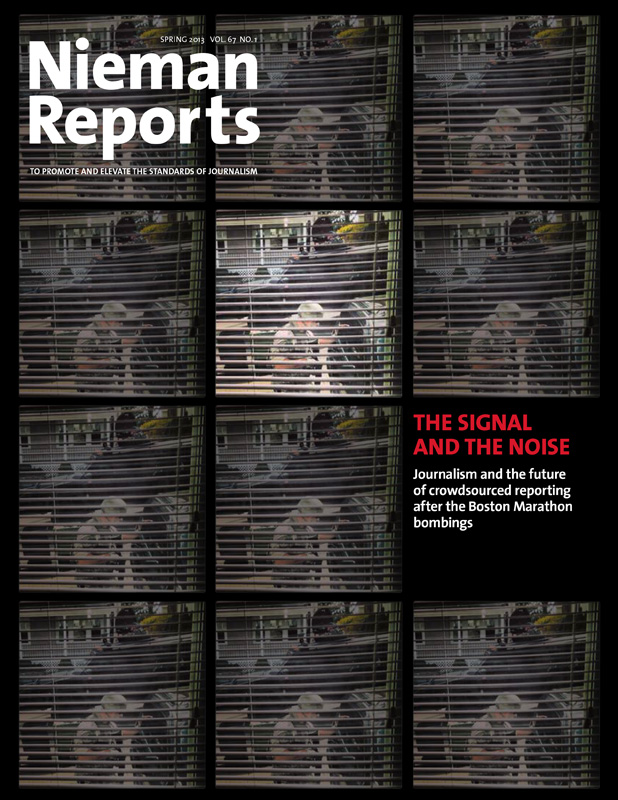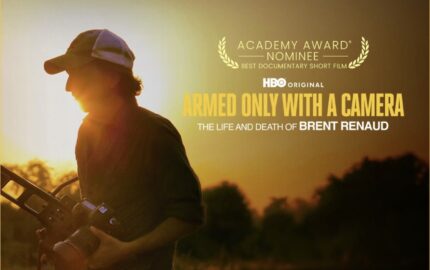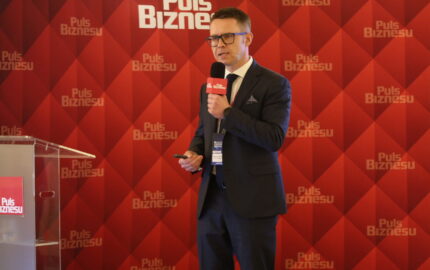
Image courtesy of the Newseum
A selection of stories by Niemans about the Boston attacks
The explosions at the Boston Marathon made front-page news around the world, with Líberation in Paris, El País in Madrid, and The Jerusalem Post in Israel carrying coverage from 2013 Nieman Fellows Ludovic Blecher, Borja Echevarria, and Yaakov Katz, respectively. Katz’s story was headlined, “Boston will keep on running.” Another Nieman Fellow from this year’s class, Mary Beth Sheridan interviewed witnesses and covered the aftermath for The Washington Post. Brent McDonald, a videographer for The New York Times and a 2013 Nieman affiliate, produced “Witness to Chaos at the Boston Marathon,” a video that included an interview with a runner and several bystanders.
Another 2013 fellow, Boston Globe reporter David Abel was on the scene at the Marathon when the explosions hit. His video of the immediate aftermath and his stories brought him calls from media around the world eager to interview him.
Dina Kraft, a 2012 Nieman Fellow who moved to the Boston area from Israel in 2011 after reporting there for The New York Times, wrote for Haaretz about her reaction to the slow flow of news in the minutes immediately after the explosions: “I quickly flick between radio stations. Where is the news? Where? … If this were Israel, I thought, the radio would practically turn itself on to announce a terror attack.” Writing at GlobalNews.ca, Kraft further explored the comparison between the bombing scene in Boston and the ones she had seen in Israel.
Kevin Cullen, a 2003 Nieman Fellow and columnist for The Boston Globe, on Tuesday called out for answers and resolve. “We will get through this, but we will never be the same,” he wrote. His column the following day showed what a small town Boston is: Almost every firefighter on Engine 7 at the scene knows the family of 8-year-old Martin Richard, who died in the explosion.
Susan Orlean, a 2004 Nieman Fellow and a former resident of Boston, reflected on intangibles that were destroyed by the explosions. “I’m sure rural marathons and small-city marathons are great, but the special thing about big-city marathons, like New York and Boston, is that they are occasions when the clashing and whirring of urban life quiets, and everyone stands together to see a bunch of people trying to do something very simple that is also very hard.”
Paige Williams, a 1997 Nieman Fellow, walked along the perimeter of the scene with forensics profesor Adam B. Hall to learn more about what investigators would be looking for. "As we walked, wind whipping the coattails of passersby, Hall occasionally dropped his voice, to avoid being overheard. 'When I teach, I tell students not to talk about their work in public,' he said, as we looked for a place to get in out of the bluster. 'It freaks people out. Plus, at a time like this, when everybody’s on heightened alert…'"



